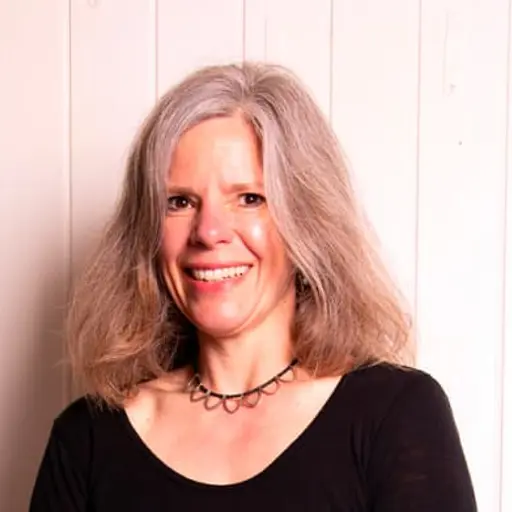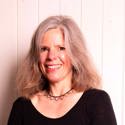At Sitebulb, our tool scales with you. Whether you’re doing SEO for a global news publisher or a SME, for a small or large agency, we support SEOs at all stages of their career. And we want to shine a spotlight on some of the superb SEOs that are out there. Some you may have heard of, and some perhaps not… not yet anyway!
Today, we speak to Kate Barlow, Group Head of Digital at The CFO Centre, who Jojo met at Women in Tech SEO Fest London this year.
To get started, briefly give us an intro to you:
I’ve been in my current role, as Head of Digital for a small multinational, for the past 2 years. This comes after 20 years as a freelance strategic SEO consultant, and it’s both interesting and enjoyable to experience the client-side world.I’d love to tell you that I made this move as part of a grand plan, but that wouldn’t be very truthful. The reason I made the leap was that I was invited to apply for a job that sounded too good to turn down. I predicted this role would give me the opportunity to dive deep into a role with some complexity and have a significant impact by building from the ground up, and I’m delighted to say I was right. I am now enjoying building a team, having colleagues to bounce ideas off and working closely with people with different skillsets.Much as I enjoy working in-house, I also relish the variety that consultancy work brings and, some days, I feel slightly nostalgic about that. Over the years I consulted with a wide variety of clients in many different sectors, so every new project tested me in different ways. I prize this aspect of life in SEO as continuous learning and development is one of my core values!The continual flow of change in digital marketing gives us plenty of variety and provides a continuous driver to expand our skills. Through my varied, hands-on experiences I’ve gained a broad understanding of how different aspects of digital marketing interact in a practical way in businesses. However, I don’t believe that ‘learning by doing’ is enough on its own so I’ve honed my skills by taking training courses in everything from
Tom Critchlow’s SEO MBA to technical SEO, social media, FB ads, Amazon sales, advanced analytics, page speed improvement and structured data.Some of these things are now mainstream SEO, but they were cutting edge at the time, so I felt it was crucial to ‘get to grips with’ them and even more important to understand their impact on my clients. For example, I remember Google’s first hints that secure hosting was going to become a ranking signal. This prompted me to help clients get ahead of the curve by carefully planning their migrations from http to https whilst minimising the risk to their rankings through the process.These days it’s taken as read that our hosting will be secure hosting, but it was a big deal at the time. The challenge we all face is to keep on learning so we can spot the next big changes in time to prepare our responses.I believe we all need to develop a broad digital knowledge to achieve results. Without this, how do we know where businesses should focus their efforts to reach their goals? However, when it comes to implementation, it’s impossible to be an expert in everything so I’ve focused on delivering excellent SEO.When I worked as a consultant, I realised that tech SEO gave me an opportunity to differentiate myself from the competition and I also knew that none of my broader SEO efforts would have a powerful impact without technical performance improvements. I admit that I probably drive most developers nuts with my constant requests for them to work on myriad niggly factors that incrementally improve Core Web Vitals!Having said that, I’m also deeply sympathetic to the challenges they face, and I relish the opportunity to partner with them to balance the needs of website visitors with the demands of Google and the limitations of business budgets. Pragmatism is a superpower in this space!I use my curiosity (some might call it nosiness), my eye for anomalies and my confidence with technical principles to great effect when it comes to website audits. Combining tech SEO skills with a wider perspective on business, strategy and other areas of digital helps me to deliver premium quality audits packed with practical advice.Word to the wise… In my consultancy days, I didn’t appreciate how good my audits were until I was subcontracted by an agency to carry out audits for their clients. When I found out that the agency was charging clients at least 4x what they were paying me, I realised that I should have been charging a lot more. Obviously, the agency had margins to cover but I learned to stop underestimating the value of my work. Please reflect on my mistakes when you are thinking about your own value!
SEOs have varied backgrounds, in PR, web development, marketing, content and more. How did you get into SEO?
It seems like a lifetime ago since I entered the digital arena. In 1995, I was a fairly new graduate in Anthropology, with my first Chartered Institute of Marketing qualification under my belt. I successfully applied for a new job as a marketing executive and arrived on day 1 to be faced with two big surprises.First, I found that the person I thought I’d be working for had already handed in his notice, so I just had 2 weeks to learn as much as I possibly could before being left with sole responsibility for managing a high-tech business angels’ network.Secondly, I was asked what I knew about the internet. I responded truthfully that I’d heard about it, but I didn’t add any more on the subject because I knew absolutely nothing beyond the name. Apparently, this was sufficient qualification for the next surprise of the day, namely that managing and updating the website was to become my responsibility.Forget Wordpress or any of the visual platforms we’re familiar with now. This was pre-Dreamweaver. We’re talking proper old school HTML and no backups. I felt like I was taking my life in my hands every time I published a new page.Time moved on and I got frustrated with the lack of opportunities to progress within the organisation and the lack of support for skills development. I guess I could have just taken an evening class but, in a slightly crazy move, I threw life up in the air and headed to Cranfield School of Management for a full-time MBA. It was a fabulous immersion into the world of strategy, marketing, the psychology of teams, finance, project planning and so much more.We talked about digital during our studies but, in the days of dial-up broadband, the notion of doing anything as sophisticated as running a webinar was a stretch. From Cranfield I joined a telecoms dotcom (that was a bumpy ride!) and then joined a multinational to look after their digital presence in EMEA. That was my first real introduction into hands-on SEO, and I decided this was something I wanted to pursue in greater depth.When I was made redundant from that role, I set up my own business with a mission to help companies grow their value through sound investments in digital marketing and I’m proud to reflect that I have achieved exactly this many times over the years.
What do you like most about the work you do?
Moving in-house has given me the opportunity to dig deep into the detail and go wide across the elements that underpin the entire digital offering in a larger organisation.I’m involved with developing and activating the digital strategy across the 15 countries and markets where we operate. My role is new in this business so it’s been rewarding to take ownership of challenges, like unpicking the complexity and confusion created by a martech stack that has evolved over time.A further challenge is ensuring all our assets have been updated following our rebrand. I’ve described it as “cleaning up the digital litter”! My biggest learning is that no matter how big or small your business, life can get complicated if you grow your digital footprint with many different tools and inadequate documentation.I love the constant learning that these challenges provide, and I’m very proud to have built strong foundations through a better tech stack and a great technical team.We’ve had so many challenges to overcome to get confidence in the simplest things, like getting Google Search Console set up and GA4 implemented across 15 countries and 19 different websites. Don’t even ask what our Google Tag Manager looked like when I started. (Massive shout out to
the amazing Dana DiTomaso for working with us to wrestle that hot mess into working order.)There is still lots to do to improve the current website(s) but organic traffic is stable (which for us is a big win) and conversion rates have increased by over 100%. I’m proud to say that 2 years in, the business has a much cleaner digital footprint, its martech is more effective and the website’s technical performance is transformed for the better.While we have no plans to use AI for writing content, using the incredible range of expert agents in the MeclabsAI tool accelerates the work our small team can deliver. We can quickly map out a tailored plan with Project Planner and then choose the best Copywriter to help create content briefs for blogs and landing pages. The Conversion Pro is helping us find ways to optimise conversion rates and, thanks to the custom instructions and the MECLABS methodologies, the impact is demonstrable. This tool accelerates our learning as a team and makes the work very rewarding.
What do you like least about your work? – Be honest!
Working across diverse cultures can create some real challenges and incur extra costs too. Inevitably, we don’t always have the budgets for all the services I’d like to engage, such as specialist international SEOs with different languages. I’m hoping to switch out our translations budget for
international SEO when we redevelop the website, but I won’t know if I’ve got agreement for this until later this year.Last year I discovered that Hreflang tags are the very devil! I don’t imagine anyone relishes this task, but it’s been a massive learning curve to get them implemented over all 19 sites. Kudos to our amazing web development agency,
Akriga, for taking this journey with me and building custom tools for us to create and maintain the tags without us all going completely insane.Improving our website content is an ongoing journey. We’re making progress and I’m impatient for the results of our efforts, but I know that getting it right is more important than getting it done quickly.
What are you working on right now – or what have you just finished – that has been exciting/challenging?
We are currently putting together the RFP for a new website, which is incredibly exciting. It’s a chance to engage stakeholders from all countries and gather ideas on exciting ways to orientate our new site so it delivers value to all our audiences in all our countries. We’ll be putting out the RFP in April/May then selecting an agency in June, with the aim of launching in early 2025.A key focus is identifying different audiences, understanding their journeys with us as a business and looking for ways to extend the relevance of our offering throughout their lifecycle with us. We’re seeking opportunities to simplify our design, streamline user journeys, nurture visitors through the funnel and create rich online experiences for them. It is also essential that we improve UX and accessibility.The challenge is enormous. I’m leading the project, working closely with the Group CMO and, obviously, I will be championing the importance of accessibility and tech SEO. Quite honestly, I see this as a no-brainer. We won’t be offering a good experience to all our visitors if our site is inaccessible, clunky, hard to navigate, hard for search engines to crawl and contains content that they don’t care about.Oh, and just in case we need a business case to back up being decent human beings (to quote Gary Illyes on accessibility), we won’t develop profitable relationships with our audiences if we don’t strive for the highest standards in accessibility, performance and content.We’re facing and addressing these challenges head on. We’ve got lots to do but I love a challenge so I’m excited to see what we can achieve.
What sort of SEO topics, issues, and techniques are you obsessing over right now?
I moved in-house shortly before Open AI hit the headlines. Thanks to a passing conversation with a colleague, I joined the MeclabsAI Guild just as Chat GPT was stretching its wings and I’ve been exploring ever since. I’m watching closely and as mentioned above, exploring constantly to find optimal ways for us to use AI without taking risks with our content or our data.Conversion Rate Optimisation (CRO) is another hot topic. I’ve always obsessed about bringing the right traffic to the website – our ideal customers – and I’m currently fixating on ways to improve conversions to maximise revenues between now and the launch of our new site.The past two years have provided me with an interesting experiment. I’m having to work with a site which offers numerous challenges to an SEO. Our content falls short of Google’s Helpful Content requirements and those core updates just keep on coming. Until the new site is launched, we need to explore creative new ways to drive technical improvements and reduce friction through the conversion process, so I’m constantly on the lookout for any and every possible way to deliver better results in this area.
What do you think we should be talking about more as a community?
I believe we need to find better ways of differentiating between job candidates who say they know SEO and those who really DO know SEO.
Target Internet’s 2023 Digital Skills Benchmark report highlights the rapid evolution of digital channels, which should be driving us all to upskill. However, their research indicates that many within the industry aren’t doing this and that worryingly, their confidence in their ability to perform jobs in digital outstrips their abilities to actually do those jobs.We should all take note of this and we should start asking serious questions about why this is the case. Why aren’t employers investing in their people? Are there segments who are underrepresented on training courses? How do we improve access for people who want to enter our industry and those who want to improve their expertise?Digital leaders must champion their teams and fight for their training budgets. Without this investment (and a willingness on the part of SEOs to learn continuously), recruiters will run into major issues in the future.I’m worried that remote and hybrid working make it harder for young SEOs to learn from their colleagues and we’ll see more of the entry-level tasks being performed by AI. Organisations need to lean into this challenge and the SEO community needs to seek creative ways to build future talent.Let’s seize this as an opportunity to break down the hidden barriers to getting started in SEO by finding innovative ways to raise talent in underrepresented groups. Working together we will find solutions – after all, we’re SEOs and we’re smart!
What are your go-to SEO tools, and what do you use them for?
I truly love Sitebulb but I struggled to get it set up when I first moved to my current role, because of the oddities of the way our multisite is set up. Luckily,
the amazing Patrick Hathaway saved me and helped me to figure it out.It is an invaluable tool to unpick detailed technical issues on websites and the visuals make great screenshots in presentations or reports when you need to show people the impact of your work. This is a key part of the communication that can accelerate your progress.Everyone needs GSC and don’t neglect Bing Webmaster Tools. BWT helped me to crack open and resolve the mystery of why LinkedIn was outranking our own site for a branded search: you can’t get indexed if you aren’t getting crawled!SERanking is another tool I love, and I also like to have a specialist keyword research tool handy, like Wordtracker. I’ve got the developers using Speetals and Capo, along with Webpagetest.org. Honestly, if I had a bigger budget, I’d be a bit of a tools junkie but, having said that, I’m a keen tools pruner too. No matter how much I love a tool, if I haven’t used it for 3 consecutive months then I stop renewing it.On the AI front, it’s
MECLABS AI all the way. The different “experts” within the tool remove the complexity from the prompts. Instead of spending ages on careful prompt engineering, you simply choose one of the specialist agents (e.g. project planner, marketing professor, transcript tutor, email specialist – the list is ever-expanding) for your context. Engage your chosen agent in conversation, switch back and forth between agents, ask them to challenge each other and build your understanding of your next best action by tapping into the wisdom and learnings gleaned from MECLABS’ 10,000+ marketing experiments.As I mentioned, I’m using it to help me plan projects, weigh up options for Information Architecture, improve conversion rates, write social posts and hone my page copy to speak more powerfully to my ideal customer profile. I even ask the Marketing Professor to help me write prompts to get the best results from the other experts. However, I don’t outsource my brain to AI. I make sure I apply my own knowledge and experience as a digital marketer and a business professional too.Oh, and MECLABS is just about to release a specialist SEO agent which I’m ridiculously excited about.
What’s your top tip for superb SEO?
Never stop learning! Keep exploring and bring a “beginner’s mindset” to everything you do.I’ve just listened to an
interview with Charles Duhigg, author of a book called “Supercommunicators: How to Unlock the Secret Language of Connection” and the key message he shares is that supercommunicators ask more questions than average.Throughout my career as an SEO, and in life, the biggest traps I’ve fallen into have been when I haven’t asked enough questions. Communication in SEO in general and particularly in technical SEO is a challenge. As Duhigg illustrates so beautifully, when we ask enough questions to understand “where” someone is and then we take time to connect, communication becomes fluid.So, ask questions, look for patterns and always keep the needs of the (internal or external) client in mind.
Are you an SEO with a passion or project to share? Get in touch with us about writing an article or doing a Q&A.



 Celebrating Superb SEO(s): Q&A with Brad Webster
Celebrating Superb SEO(s): Q&A with Brad Webster
 Sitebulb Desktop
Sitebulb Desktop
 Sitebulb Cloud
Sitebulb Cloud
 Kate Barlow
Kate Barlow
